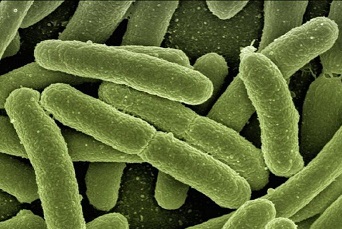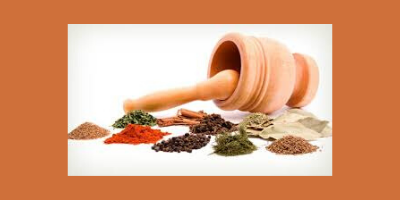Many of you have seen your grandparents and parents eating jaggery after lunch or dinner! Do you know why do they eat it and recommend it to others as well? There are a number of reasons behind it. There are innumerable health benefits of jaggery. It is not just a raw sweet or sweetening agent but also a wonderful remedy for many diseases.
Jaggery is a great remedy for anemia, asthma, joint pains and menstrual pains. It also aids in digestion, purifies blood and keeps the skin away from problems such as acnes and pimples. It is a great energy booster as it provides us lots of energy. If you feel drained at any point of the day, a piece of jaggery with water can do wonders for you.
Some people don’t like because of its raw appearance. It’s yellowish, dark brown color and solid or gooey texture might be very unappealing, but its health benefits are great. If you don’t like it in its raw form, you can have jaggery laddoos. These laddoos are made up of lots of dry fruits like almonds, cashews, walnuts, peanuts and jaggery. It is a great way to gain its health benefits while satisfying your taste buds and eyes as well.
Jaggery is prepared from sugarcane molasses; it’s the unrefined brown sugar. Better known as the medicinal sugar. It’s available in many forms like blocks, liquid, powder or small random pieces. Lets first see what is the difference between jaggery and sugar, and why should we replace sugar with jaggery.
Following are the benefits of jaggery
Energy Food: Carbohydrate being the main nutrient supplied by jaggery, foods high in carbohydrates fuels our body to produce sustainable energy through oxidation. Jaggery has more complex form of carbohydrate than plain sugar. So, it is digested and absorbed gradually and releases energy gradually. This provides with warmth and energy for a longer period, without harming the internal organs. This could be a good food supplement for fitness lovers. However it provides roughly around the same amount of energy and carbohydrate as sugar. So excess intake of jaggery is not advocated.
Cleansing Agent
Jaggery effectively cleans the respiratory tracts, lungs, food pipe, stomach and intestines. It pulls out dust and unwanted particles from the body. It also helps in giving relief from constipation, perhaps due to presence of fiber in it.Jaggery has strong antioxidant properties and protects our body cells from the damage caused by free radicals. Apart from this, the presence of mineral potassium helps to assists kidneys to remove waste by the process of excretion.
Digestive Agent:
This may sound strange but it is true and it has sufficient scientific explanation behind this. In India, it is recommended to take a few grams of jaggery after a heavy meal of after eating meat. This facilitates digesting. What happens is that jaggery activates the digestive enzymes this speeds up digestion.
Jaggery helps in bile disorder
According to ayurveda, jaggery helps in treating bile disorders thus is useful in treating jaundice. It strengthens the liver.
Jaggery helps in maintaining acid balance
Jaggery is high in Potassium and low in Sodium helps to maintain blood pressure and reduces water retention.. This also helps in maintaining balance in your body. Infact, jaggery, when taken along with dry ginger is a known cure for acidity and gas.
Jaggery is eco-friendly
According to World Wildlife Fund (WWF), sugar industry pollutes air, water and soil. While jaggery is produced by cooking sugarcane juice in an iron vessel, sugar undergoes various treatments, purification, crystallization which not only wastes several gallons water, but also pollutes natural water source, where the wastewater is dumped! Jaggery is healthier and greener.
Jaggery helps to treat Cramps:
Due to the presence of magnesium and potassium. Muscle cramps result due to low level of potassium in the blood, a condition called as hypokalemia; also due to magnesium deficiency symptoms of cramps in leg as well as fatigue are normally visible.
Keeps bone healthy
Due to the presence of magnesium, which is directly related to the bone density? Inadequacy of this mineral could be a cause of osteoporosis. Magnesium helps in regulation of calcium levels in the body along with vitamin D, copper, zinc etc.
May help to prevent Stroke:
Due to the presence of Potassium, which plays an important role in keeping the working of brain in normal state? It is of great importance in preventing the occurrence of stroke in human brain.
Prevents Asthma
Chronic asthma patients may be able to normalize their breathing with help of jaggery due to magnesium present in it that aids in relaxing bronchial muscles and normalize breathing. Even wheezing and breathlessness can be relieved through.
Increases hemoglobin
Jaggery is rich in iron and thus is highly recommended for anaemic people, helps in increasing haemoglobin. most of the iron in it comes through processing in iron vessels.
Culinary Uses
In Maharashtra most vegetables curries and dals contain jaggery, also a pinch of jaggery is sometimes added to sambar, rasam and other gravies.
-Jaggery is specially used during Makar Sankranti for making sweetmeat called tilgul.
-It is regularly consumed as a sweetener and is a part of many sweet delicacies such as gur ka chawal (rice with gur) which is a traditional Rajasthani dish.
– Jaggery is also added to lentil soups to add sweetness to balance the spicy, salty and sour components, particularly in Gujarati cuisine
– Many sweet dishes are made by mixing jaggery with milk and coconut or with nuts like cashew.
– can be added to porridges esp in weaning food, can replace sugar in milk with jaggery for young children’s and adults.
-can be used as a preservative.
-can be added to lemon water, tea.
-Minimize your sugar intake and replace with jaggery when you prepare sweet dishes at home.
So r u still thinking …..Go ahead make a start replace white poison, sugar with jaggery.
Jaggery Nutrition
Jaggery nutrition facts reveal it to be superior to brown sugar and processed white sugar. It is a rich source of natural sugar, vitamins and minerals.
We have many forms of sugar, of which the most common type is available as refined, white and granular sugar. Unfortunately, it is linked with several lifestyle illnesses, including obesity, diabetes, dental cavities and heart problems. Thus, with the raising health concerns of using regular sugar in daily diet, nutrition experts are busy with searching alternative forms of sweetener that pose lesser health risks. And one such sweetening product is jaggery, sold as golden brown or dark brown, solid molasses. Information on jaggery nutrition facts is discussed in the upcoming paragraphs.
Jaggery Nutritional Information
Jaggery has been used as a sweetening agent in parts of Asia, Africa and Latin America. This somewhat natural form of sugar is known by varied names in different regions. It is derived from sugarcane, sugar palm and other plant sources, which contain high percentage of sucrose, glucose and fructose. But, as we all know, white sugar is also a product of sugarcane. So, what is so special about jaggery that is not in white sugar? The uniqueness of jaggery lies in the making process. It is prepared by boiling sugarcane pulp without undergoing processing steps.
Jaggery, also known as gur, has a mineral content of approximately 60 times that of refined white sugar. One teaspoon of jaggery contains approximately 4-5 mg calcium, 2-3 mg phosphorus, 8 mg magnesium, 48 mg potassium, 0.5 mg iron, as well as trace amounts of zinc, copper, thiamin, riboflavin, and niacin. The corresponding values for white sugar are all essentially zero.
Calories
Since jaggery contains high amounts of sugar, glucose and fructose, the calorie count of this sweetening agent is high. Serving 1 teaspoon (4 g) of jaggery yields 12.32 kcal. In other words, including 100 g of jaggery in the diet is equivalent to providing 308 kcal. Accordingly, you can adjust the serving quantity of other calorie loaded foods.
Sugar Content
Well-made jaggery contains approximately 50 percent sucrose and 20 percent of glucose and fructose (invert sugar), which altogether comes to about 3.08 g sugar. Of the remaining components, moisture contributes to about 20 percent volume. The rest constituents include proteins, mineral, vitamins, wood ash, biogases and other insoluble particles.
Potassium
Refer to the list of potassium rich foods; you will surely come across jaggery. As per researches conducted on jaggery nutrition, it is found that serving a teaspoon of this unrefined sugar is sufficient to give 45 mg of potassium. This high potassium and low sodium food is a healthy choice for people with hypertension and heart problems.
Selenium
requiring in trace amount, selenium is crucial for normal functioning of the immune system. Together with manganese, it counteracts the harmful free radicals in the body, thus functioning as powerful antioxidants. Not all nutritious foods are superior enough to serve as a selenium source. Fortunately, jaggery is one such food products that contain selenium.
Magnesium
Magnesium is present in it in moderate amounts. Serving one teaspoon of this non-centrifuged sugar form is beneficial for providing 8 mg of magnesium. Thus, incorporating jaggery in the daily diet is helpful in increasing stamina level, strengthening muscles and blood vessels.
Calcium
A serving size of 1 teaspoon jaggery is useful for yielding 4-5 mg calcium. The calcium content is found to be higher in coconut palm jaggery. As we all are aware, calcium is crucial for strengthening bones and teeth.
Other Nutrients
The total mineral content of jaggery is 5 times higher than brown sugar and 50 times more than that of regular sugar. A food rich in iron, it is a healthy nutrition choice for anemic patients. Other nutrients found in jaggery are riboflavin, thiamin, niacin, zinc, chromium and copper. The plus points with consumption of jaggery are low-fat and low sodium content.
With reference to jaggery benefits in maintaining optimal health, it is also referred to as medicinal sugar. Including this in the regular diet is a simple way to provide energy, essential vitamins and minerals in their natural form. You can use it as a sweetener in recipes that call for refined sugar. And to get the same sweetness, jaggery amount should be higher than the required sugar.
In a nutshell, the richness of jaggery is evident from the fact that, it is used for replacing refined white sugar for diabetic patients. However, as with any sweetening agent, the consumption amount should be monitored stringently. It should be used in moderate amounts, and high consumption is associated with increased sugar levels in the bloodstream
http://www.buzzle.com/articles/jaggery-nutrition.html





0 Comments